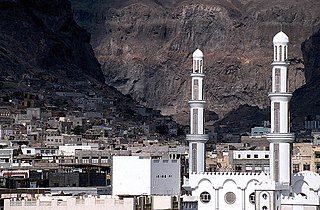
The member states of the United Nations comprise 193 sovereign states. The United Nations (UN) is the world's largest intergovernmental organization. All members have equal representation in the UN General Assembly.

United Nations Security Council Resolution 678, adopted on 29 November 1990, after reaffirming resolutions 660, 661, 662, 664, 665, 666, 667, 669, 670, 674 and 677, the council noted that despite all the United Nations efforts, Iraq continued to defy the Security Council.

United Nations Security Council resolution 660, adopted on 2 August 1990, after noting its alarm of the invasion of Kuwait by Iraq, the council condemned the invasion and demanded Iraq withdraw immediately and unconditionally to positions as they were on 1 August 1990.
Chapter VII of the United Nations Charter sets out the UN Security Council's powers to maintain peace. It allows the Council to "determine the existence of any threat to the peace, breach of the peace, or act of aggression" and to take military and nonmilitary action to "restore international peace and security".

United Nations Security Council Resolution 29, adopted unanimously on August 12, 1947, upon having reviewed and in some cases, re-reviewed applications for membership in the United Nations by Albania, Mongolia, Transjordan, Ireland, Portugal, Hungary, Italy, Romania, Austria, Mutawakkilite Kingdom of Yemen, Bulgaria and Dominion of Pakistan. The Council recommended that the General Assembly admit Yemen and Pakistan.
United Nations Security Council Resolution 50, adopted on May 29, 1948, called upon all governments and authorities involved in the conflict in Palestine to order a cessation of all acts of armed force of four weeks, to refrain from introducing any fighting personnel into Palestine, Egypt, Iraq, Lebanon, Saudi Arabia, Syria, Transjordan or Yemen during the cease-fire, to refrain from importing or exporting war material into or to Palestine, Egypt, Iraq, Lebanon, Saudi Arabia, Syria, Transjordan or Yemen during the cease-fire.
United Nations Security Council Resolution 179 was adopted on June 11, 1963. The parties directly concerned with the situation in Yemen agreed to disengage and the Governments of Saudi Arabia and the United Arab Republic agreed to pay the expenses for a UN observers mission over 2 months. The Council urged the parties to observe the terms of disengagement and requested the Secretary-General establish the observation operation as he defined and to report to the Council on the implementation of the resolution.
United Nations Security Council Resolution 188, adopted on April 9, 1964, after a complaint by the Yemen Arab Republic about a British air attack on their territory on March 28, the Council deplored the action at Harib as well as at least 40 other attacks that had occurred in that area. The United Kingdom had also complained that Yemen had violated the airspace of the Federation of South Arabia.

United Nations Security Council Resolution 243, adopted unanimously on 12 December 1967, after examining the application of the People's Republic of Southern Yemen for membership in the United Nations, the Council recommended to the General Assembly that the People's Republic of Southern Yemen be admitted.

United Nations Security Council resolution 924, adopted unanimously on 1 June 1994, after considering the civil war in Yemen between the Yemeni government and Yemeni Socialist Party, the Council called for the immediate cessation of hostilities and for a fact-finding mission to be sent to the country.

United Nations Security Council resolution 931, adopted unanimously on 29 June 1994, after recalling Resolution 924 (1994) on the civil war in Yemen, the Council considered the findings of the fact-finding mission deployed to the country and demanded a ceasefire.
United Nations Security Council Resolution 2014 was unanimously adopted on 21 October 2011.

The United Nations Supervision Mission in Syria (UNSMIS) was a United Nations peacekeeping mission in Syria, set up in 2012 as a result of United Nations Security Council Resolution 2043 in response to the Syrian Civil War. It was commanded by Norwegian Major General Robert Mood until 20 July 2012 followed by Lieutenant General Babacar Gaye from Senegal. Although observers remain in the country, Mood suspended their mission on June 16, 2012 citing "escalating violence". Observers will conduct no further patrols and stay in their current positions until the suspension is lifted. On 20 July 2012, the Security Council extended UNSMIS for a final period of 30 days. According to resolution 2059, the Council would only consider more extensions in the event that the Secretary-General reports and the Security Council confirms the cessation of the use of heavy weapons and a reduction in the level of violence sufficient by all sides to allow UNSMIS to implement its mandate.

United Nations Security Council Resolution 2564 was adopted on 25 February 2021. It calls for a nationwide sanctions in Yemen. According to the resolution, the Security Council renews ban on destabilizing actors in Yemen, but Houthis reject latest resolution.

United Nations Security Council resolutions are United Nations resolutions adopted by the fifteen members of the Security Council (UNSC); the United Nations (UN) body charged with "primary responsibility for the maintenance of international peace and security".

On 14 April 2015, the United Nations Security Council adopted Resolution 2216 on Yemen. Fourteen members of the Council voted in favor, while only Russian Federation abstained. The Resolution imposed "sanctions on individuals undermining the stability of Yemen, calling all Yemeni parties, in particular the Houthis, to end violence and refrain from further unilateral actions that threatened the political transition."

The United Nations Security Council Resolution 2204 was unanimously adopted by the Security Council on 24 February 2015. The resolution extended sanctions on individuals threatening the stability of Yemen and extended the mandate of the Panel of Experts on Yemen for one year.

The United Nations Security Council Resolution 2201 was unanimously adopted on 15 February 2015. The Security Council condemned the actions of the Houthis and demanded them to withdraw from the state institutions and release Yemeni president Abdrabbo Mansour Hadi.










